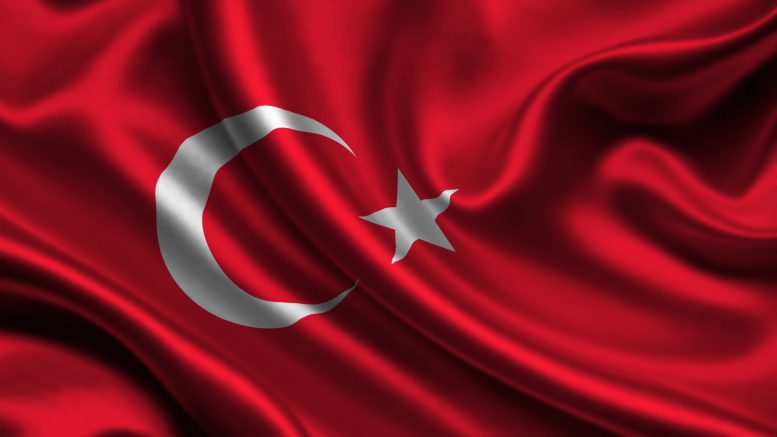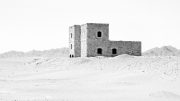Just a year ago, Mecbure Demir, the matriarch of large Kurdish family from a restive town in Turkey’s southeast, was celebrating the prospect of peace. A fragile ceasefire was holding between the Turkish military and the insurgent Kurdistan Worker’s Party, or PKK, whose clashes over the last 30 years had riddled her life with tragedies. Amid the relative quiet, a political alternative to the armed group was skyrocketing onto the national stage, boosting hopes that the Kurds’ battle for increased rights and autonomy could move peacefully to the halls of parliament.
“We were so happy and hopeful that we would get our rights,” said Demir from her son’s crowded Istanbul apartment last month. “We thought it was a moment when things would change.”
So too did the revelers who spilled into the streets when the People’s Democratic Party, or HDP, surpassed Turkey’s 10 percent electoral threshold and entered parliament last June. So too did the writers and pundits who characterized its leader as the “Kurdish Obama,” who would give voice to the country’s minorities and lead Turkey toward a new, more inclusive democracy.
But the window of hope was short lived.
Not long after the HDP’s victory at the polls, the sites of celebration across the majority Kurdish southeast darkened into theatres of war. A Kurdish attack on police officers last summer tipped Turkey back into combat with the PKK, resulting in unprecedented destruction. The renewed fighting—much of it taking place in dense urban areas—has killed hundreds of soldiers, police officers and rebels, while displacing some half a million civilians. It has flattened towns and cities across the southeast, while escalating security risks throughout the rest of the country, which now faces terror threats from both ISIS and the PKK.
The HDP, meanwhile, is hanging on for its political life as a new reality sets in—that Turkey’s enduring “Kurdish problem” won’t see a resolution anytime soon.
For one thing, the sheer scale of destruction afflicting towns and cities across the southeast has deepened anger and mistrust toward the Turkish government. Demir, the Kurdish mother from Nusaybin, knew the Turkish military would respond when armed rebels staked out territory in her town. But she never imagined the military would unleash the force it did, engaging in full-blown battles with tens of thousands of civilians still in town.
“There were water cuts, power cuts, the bullets were coming into our house. We were constantly running from room to room—the kids were shaking out of fear,” Demir said.
The family remained in Nusaybin under six government-imposed curfews that prevented residents from leaving their homes for days and weeks at a time as the military hunted rebels in the streets. With their nerves broken, they finally fled during a pause in the fighting and traveled 23 hours by bus to the apartment of Demir’s son in Istanbul.
“We were desperate,” she said. “We realized if we stayed we would have died.”
Her daughter Songul, a 27-year-old law school graduate, points out that it is the second time the family has been displaced.
During the 1990s—the darkest days of Turkey’s war with the PKK when human rights abuses by security forces were rampant—the family was evicted from their pro-rebel village after rejecting an official’s request that they take up arms against the PKK as government-employed “village guards.”
“They burned the house down before our eyes,” she said.
Though the family’s latest displacement could also be blamed on the insurgents who brought the fighting into the cities, the Demirs point their fingers exclusively at the government.
“After all this destruction, I don’t think that peace can happen,” Songul said. “I don’t think the state is keen for peace.”
Cagdas Kaplan, a journalist with the pro-Kurdish Dilce News Agency who reported from embattled cities in the southeast, says the current conflict is deepening rifts between Kurds and the state.
“The situation is politicizing people. It’s basically traumatizing them. These are people who experienced the years of the 1990s and when they see what has happened to their cities, they have a breaking point with the state. Unfortunately when I ask [Kurds in the southeast] about peace they get angry. They say, we don’t want to live with the western part of Turkey. Of course there are some reactions against the PKK too, but there is a lot of anger against the state,” he said.
The PKK’s own violent attacks—dozens of bombings across the country that have killed soldiers and civilians alike—have also shifted support from the HDP.
The party’s ties to the PKK and mixed response to rebel violence have hurt its reputation, eroding its potential to help usher the country toward peace. One deputy, for example, became the subject of widespread scorn after attending the memorial service for a PKK-linked suicide bomber who killed 29 people in Ankara. Meanwhile, more than a dozen HDP co-mayors have been arrested for declaring autonomy from Ankara in alliance with the rebels barricading Turkish authorities from their turf.
The declarations of autonomy were largely inspired by Kurdish gains in neighbouring Syria. There, amid the chaos of civil war, Kurds closely aligned with the PKK, carving out their own territory stretching across northeastern Syria. Their gains were made with support from the United States, to the dismay of Turkish authorities who feared that Kurdish empowerment in Syria would only encourage PKK aspirations in Turkey.
When PKK violence vindicated Turkey’s fears, the country pointed its finger squarely at the United States. The U.S., in turn, has been forced to tread more carefully in its dealings with its conflicted allies: Turkey, a crucial NATO member, and the Kurdish YPG, which is instrumental in fighting ISIS in Syria, but problematically aligned with fighters wreaking havoc in Turkey’s cities.
Meanwhile, HDP members’ comments in favour of Syria-style Kurdish autonomy have also drained the party of mainstream support.
“Just before the ceasefire had broken down, the Kurdish Movement through its vehicle, the HDP, was on the cusp of becoming a mainstream Turkish party, having built an election alliance in which it had appealed to liberal Turks and gained a lot of support among intellectuals,” said Soner Cagaptay, the director of the Turkish Research Program at the Washington Institute. “The Turks were on the cusp of embracing Kurdish grievances as a national problem, but that’s now gone because of [the party’s] proximity to the PKK and the beginning of violence. HDP is now stigmatized and the Kurdish issue is again becoming an issue that’s seen as marginal by most Turks.”
It remains to be seen if the party will even survive. Turkey recently stripped all lawmakers of their immunity from criminal prosecutions. The move disproportionately affects HDP deputies, who face a barrage of charges, mostly linked to views they have expressed about the country’s Kurdish issue.
Selahattin Demirtas, the charismatic HDP co-leader, has been repeatedly accused of making terrorist propaganda and violating the integrity of the state for simply discussing calls for Kurdish autonomy in the southeast. For example, a series of investigations were launched against him late last year after he said that self-rule and autonomy “offer a very significant opportunity for all of us in terms of living together.”
The party rejects the charges against its lawmakers and has characterized them as an effort to oust the HDP from parliament and from the political process in Turkey. The party also warns of increasing instability if its lawmakers are prosecuted and jailed.
“It would create a new chaotic situation,” said Dogan Erbas, the HDP’s Istanbul co-chairperson who once served as an attorney for the jailed PKK leader Abdulla Ocalan. “And I believe that our voters would…demonstrate, hold meetings, and that tensions in society would rise.”
As the HDP fights for its political future, the PKK and its affiliates have made clear that the violence is bound to get worse.
This month, the Kurdistan Freedom Falcons, a PKK-linked militant group, warned foreigners to stay away from Turkey after claiming responsibility for a car bomb that killed 11 police officers and civilians in Istanbul. “Foreigners are not our target but Turkey is no longer a safe country for them. We have just started the war,” the group said.
In order to deescalate tensions, Erbas says the HDP is eager for government talks with Ocalan to resume.
Ironically, Turkey’s President Recep Tayyip Erdogan, who did more than any of his predecessors to reach out to the jailed leader, is now politically benefitting from war.
Despite the deepened social rifts and deterioration of security throughout the country, Turkey’s president has maintained that returning to peace talks with the PKK is out of the question.
His hardline stance has benefited him politically as he seeks support in parliament for a constitutional change that would elevate his powers as president. His hawkish stance has won him the support of both nationalists and mainstream Turks, whose disgust with the PKK has only swelled as the group ratchets up its violence across the country.

“[Erdogan] has aligned Turkey’s security elite behind him, including the military, intelligence, foreign ministry, think tanks. While they’re not interested in helping Erdogan win elections—this is not their agenda—they’re alarmed by the fact that the PKK used peace talks the two years before last summer to smuggle a huge amount of arms caches and weapons into cities in southeastern Turkey and that last summer, as soon as the ceasefire broke down, the PKK launched efforts to take control of cities in Turkey,” Cagaptay said.
“Erdogan, smart politician as he is, saw that as an opportunity to have broad public support and alignment of the security elite behind the policy in Ankara to keep fighting against the PKK.”
Cagaptay predicts that once Erdogan has the executive-style presidency he wants, he could launch a charm offensive toward the PKK and attempt to pick up the peace negotiations where they left off.
But for Kurds disillusioned by the deaths and displacement of the last months, there are now more pressing topics than negotiations for Kurdish rights.
“I just want this war to finish,” said Demir, the mother from Nusaybin, who is waiting out the war with seven others in her son’s two-bedroom apartment in Istanbul. “I just want to be back in my home.”
Source: www.opencanada.org




Be the first to comment at "In Turkey, dashed hopes and deepening rifts"